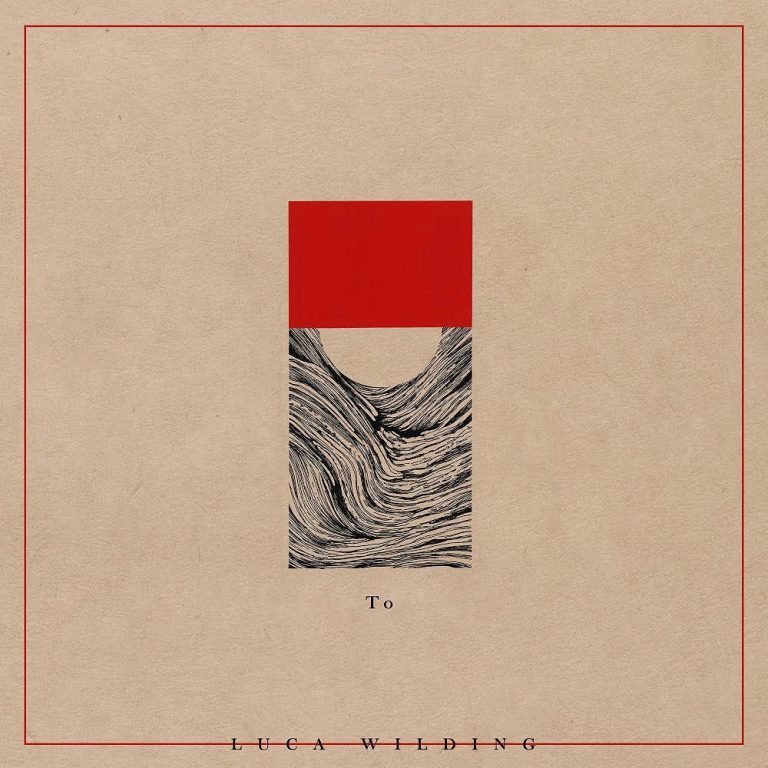Luca Wilding‘s introduction to the world was not without spectacle. His debut single, “Heartachers”, came into the world in June, accompanied by an eight-minute short film following a pair of young lovers and a lot of fireworks. The video (directed by Patrick Fileti) hits an emotional surge as Wilding’s track releases it’s full emotional core with a crescendo of accompaniment. It’s Wilding’s largest moment to date (backing voices swirling, drums charging, the singer calling out above the noise), evoking all the anthemic folk-pop bands on the radio you may or may not care for.
It’s curious then that Wilding omits “Heartachers” from the tracklist of his debut EP, To. Yet, it makes sense when you hear it: the four tracks on To are more reigned-in, looking less to bowl over new listeners and reach emotional climaxes, and more to wander about in Wilding’s self-described ‘dream-folk’ world, where characters linger on loss and kitchen sink sorrow. To shows us Wilding at his more everyday. At its brightest and most charming moments, he makes music that would perk up your ears in a coffee shop and maybe have you asking the barista who is playing over the speakers. Were “Heartachers” included, it would stick out and take all the attention away from the other tracks (for better or worse).
The highlight of To is the recent single “Ruby, Don’t Cry”, whose vocal hooks slips into your head like a perfume. Wilding’s falsetto percolates the air, adding that ounce of drama and genuine ache that keeps the chorus in your head. It helps that he doesn’t run the said chorus into the ground too; it’s catchy, but instead the instrumentation carries the song to its end, a swirl of gingerly-distorted electric guitars, airy synths, and patient drums easing the track upwards before laying it back down gently again come the end.
“Johanna” works well for similar reasons. Soft and measured drums guide Wilding and his acoustic guitar strums along while subtle background synths turn into quietly buzzing retro keyboard chords; again the track gently stirs everything together in the final 30 seconds, letting the mood travel and linger in the air for a while. “Ain’t nothing like a broken heart / To make you want to be alone,” Wilding offers in the chorus, capturing the ethos of his lyrical content in a simple sentiment.
Wilding paints images of loss and drama, taking inspiration from real life and that bit beyond. “Ruby, Don’t Cry”, for example, was inspired by a woman he met on a train, who lingered in his head after they parted company. So he decided to write a song imagining a lover whisking said woman away from her sadness (as you do). At times he’ll write a line a novelist would love to conjure (“I held her like a crucifix”) or something that sounds like it was adapted from a Sufjan Stevens track (“I undressed by the light of his phone”). Without a lyric sheet to follow though, the narratives Wilding tries to weave gets lost along the way; who the woman “lost like a leper in a street on Savile Row” is exactly isn’t the easiest to determine, but he sure sings about her with a genuine sweetness.
Consequently tracks like “Master” and “To” make a pleasant impression when they are spinning, but don’t leave you itching to return in any way. Sure, the marimba notes on “Master” might make for a rustic, wooden feel, or the way the guitar notes trickle like water from melting ice on “To” are pleasant, but beyond hearing them in the moment, one is left without anything substantial to say about them.
With all the additional instrumentation and smooth production, Wilding is certainly able to command and create the dream-folk world he wants on To, and the sweet ache in his voice will lure in plenty of listeners too. But until there’s more substance to be found underneath the moments of allure, Wilding’s music is perhaps best left to accompany something grander than to stand by itself.

